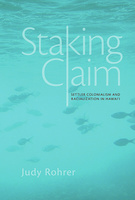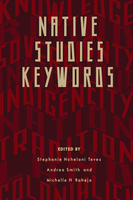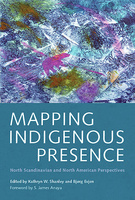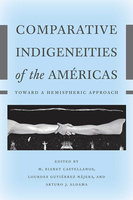Showing 16-21 of 21 items.
Staking Claim
Settler Colonialism and Racialization in Hawai'i
By Judy Rohrer
The University of Arizona Press
Staking Claim analyzes Hawai‘i at the crossroads of competing claims for identity, belonging, and political status. Judy Rohrer argues that the dual settler colonial processes of racializing native Hawaiians (erasing their indigeneity), and indigenizing non-Hawaiians, enable the staking of non-Hawaiian claims to Hawai‘i.
Native Studies Keywords
The University of Arizona Press
Native Studies Keywords is a genealogical project that looks at the history of words that claim to have no history. The end goal is not to determine which words are appropriate but to critically examine words that are crucial to Native studies, in hopes of promoting debate and critical interrogation.
Mapping Indigenous Presence
North Scandinavian and North American Perspectives
The University of Arizona Press
Mapping Indigenous Presence promises to become a benchmark for future conversations concerning comparative Indigenous scholarly methodologies. Shanley and Evjen’s work attests to the importance of the roles Indigenous peoples have played as overseers of their own lands and resources and as political entities capable of governing themselves.
Therapeutic Nations
Healing in an Age of Indigenous Human Rights
By Dian Million
The University of Arizona Press
Therapeutic Nations is one of the first books to demonstrate trauma's wide-ranging historical origins, and it offers a new indigenous feminist critique of the conversation of healing. Million's theoretical sophistication and original research make the book relevant across a range of disciplines as it challenges key concepts of American Indian and indigenous studies.
Diné Perspectives
Revitalizing and Reclaiming Navajo Thought
Edited by Lloyd L. Lee; Foreword by Gregory Cajete
The University of Arizona Press
The contributors to this pathbreaking book, both scholars and community members, are Navajo (Diné) people who are coming to personal terms with the complex matrix of Diné culture. Their contributions exemplify how Indigenous peoples are creatively applying tools of decolonization and critical research to re-create Indigenous thought and culture for contemporary times.
Comparative Indigeneities of the Américas
Toward a Hemispheric Approach
The University of Arizona Press
Comparative Indigeneities of the Américas highlights intersecting themes such as indigenismo, mestizaje, migration, displacement, autonomy, sovereignty, borders, spirituality, and healing that have historically shaped the experiences of Native peoples across the Américas. In doing so, it promotes a broader understanding of the relationships between Native communities in the United States and Canada and those in Latin America and the Caribbean and invites a hemispheric understanding of the relationships between Native and mestiza/o peoples.
Stay Informed
Subscribe nowRecent News






